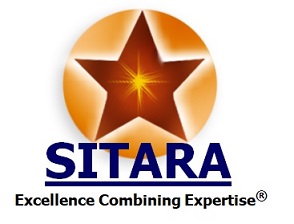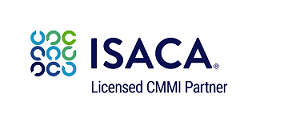|
|
.· ·. .· |
||
| ASK SITARA | |||
| LATEST DEVELOPMENTS AT SITARA | |||
| REGISTRATION FORM | |||
|
|
|||
People CMM Model Training
Authorized Introduction to People CMM V2.0
SITARA Continuing Education Points: 3 points
TUTORIAL DURATION : 3 Days
PREREQUISITES: Project Management & Team Building experience in a software development environment. Good understanding of issues concerning Process Engineering.
TUTORIAL OBJECTIVES:
![]() Participants will gain an in depth understanding of the PCMM
framework.
Participants will gain an in depth understanding of the PCMM
framework.
![]() The structure and rationale of the PCMM framework will be explored
and the interconnections between the
Key Process Areas will be established.
The structure and rationale of the PCMM framework will be explored
and the interconnections between the
Key Process Areas will be established.
![]() An ideal course, for those who want to pursue a career in engineering
competency based practices within an organization which is recognized by
the Society for Human Resource
Management (SHRM).
An ideal course, for those who want to pursue a career in engineering
competency based practices within an organization which is recognized by
the Society for Human Resource
Management (SHRM).
![]() This course is mandatory and required to serve as a
prerequisite for the PCMM assessment team
This course is mandatory and required to serve as a
prerequisite for the PCMM assessment team
ABSTRACT:
This tutorial is an exhaustive treatment of the PCMM framework. Individuals interested to work on the assessment team on a PCMM assessment will find this course of immense value. In order to sustain the gains of a change initiative, we now see that we must work to change the relationship styles, attitudes and self-esteem of the people who are expected to live out these changes. A strong blend of both technical skills and people skills are needed for a successful management of a change initiative. Whatever an organization is doing now, no matter how bizarre or dysfunctional it might appear, it was at one time a successful response to the reasons surrounding the exhibited behavior. The PCMM framework helps an organization to continually clarify and explore whether the exhibited response is still a valid response ... or should the organization do something different with the changes to the circumstances. The framework is a staged approach to managing the circumstances that surround an organizational competency development program.
Some
of the key areas addressed by the PCMM framework include career
development, compensation, competency development, culture development,
performance management, training, team building, workforce management and
personal competency development. When viewed as a staged model, at Level 2
the Repeatable Level, issues that keep people from being able to perform
their work responsibilities are addressed by building a foundation of
basic workforce practices to create a CULTURE OF COMMITMENT. At Level 3
the Defined Level, any inconsistencies in workforce practices are removed
by analyzing skills required by its workforce to execute the business
functions by identifying best practices and tailoring mechanism in its own
workforce activities to create a CULTURE OF PROFESSIONALISM. At Level 4
the Managed Level, experience of the organizational workforce is
effectively leveraged to provide strong mentoring and alignment of
individual performance to the team, unit and organizational goals by
creating a CULTURE OF COMPETENCIES. At Level 5 the Optimizing Level,
continuous clarification of individual competencies by finding innovative
ways to improve workforce capability by providing an environment of
perpetual improvement and growth of competencies using effective coaching
programs to build a CULTURE OF CONTINUOUS IMPROVEMENT & EMPOWERMENT is
established.
This tutorial provides ample scope to gain a good understanding of these
essential requirements to keep an organization vibrant and alive.


